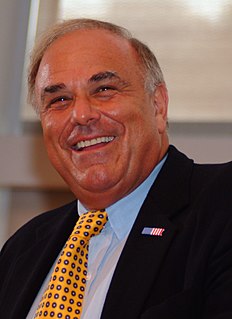A Quote by Leon Russell
Related Quotes
I do sense, as compared with let's say the early '50s, there's somewhat more of a careerism. I don't think it's anything special to economics; it's equally true with physics or biology. A graduate education has become a more career-oriented thing, and part of that is because of the need for funding. In fact, that's a much worse problem in the natural sciences than it is in economics. So you can't even do your work in the natural sciences, particularly, and even to some extent in economics, without funding.
Economics and politics are so intertwined and interlinked that politics now, mainstream politics, extreme center politics, are little else but a version of concentrated economics. And this means that any alternative - alternative capitalism, left Keynesianism, intervention by the state to help the poor, rolling back the privatizations - becomes a huge issue. The entire weight of the extreme center and its media is turned against it, which in reality now is beginning to harm democracy.
A … difference between most system-building in the social sciences and systems of thought and classification of the natural sciences is to be seen in their evolution. In the natural sciences both theories and descriptive systems grow by adaptation to the increasing knowledge and experience of the scientists. In the social sciences, systems often issue fully formed from the mind of one man. Then they may be much discussed if they attract attention, but progressive adaptive modification as a result of the concerted efforts of great numbers of men is rare.
The belief that politics can be scientific must inevitably produce tyrannies. Politics cannot be a science, because in politics theory and practice cannot be separated, and the sciences depend upon their separation. Empirical politics must be kept in bounds by democratic institutions, which leave it up to the subjects of the experiment to say whether it shall be tried, and to stop it if they dislike it, because, in politics, there is a distinction, unknown to science, between Truth and Justice.
After years of work in both areas of study, I concluded that the social sciences were different, in many important ways, from the natural sciences, but that the same scientific methods were applicable in both areas, and, indeed, that no very useful work could be done in either area except by scientific methods.
I think corporations should give more attention to this suffering and should wait to invest until there is a responsible government in Burma. I do not think it is a good idea to separate economics from politics; in fact, I do not think economics can be separated from politics It's quite understandable that many business concerns think only about their own profits It's up to the public to put as much pressure as it can on these companies, through shareholder resolutions and public actions.
I also believe - and hope - that politics and economics will cease to be as important in the future as they have been in the past; the time will come when most of our present controversies on these matters will seem as trivial, or as meaningless, as the theological debates in which the keenest minds of the Middle Ages dissipated their energies. Politics and economics are concerned with power and wealth, neither of which should be the primary, still less the exclusive, concern of full-grown men.




































